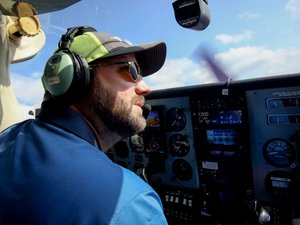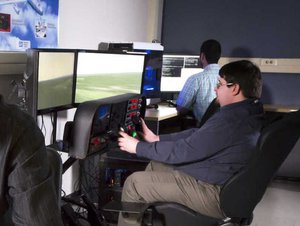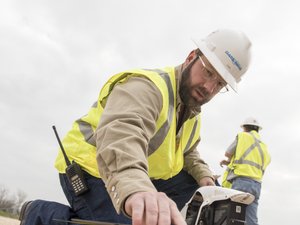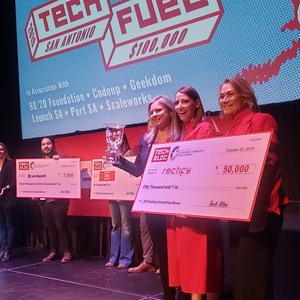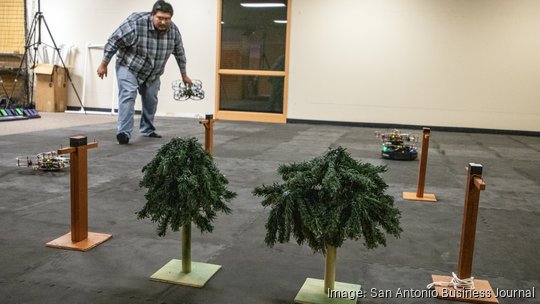
Through its partnership with the University of Incarnate Word (UIW), CPS Energy is exploring the feasibility of using autonomous drones to inspect power lines.
The typical Unmanned Aircraft System (UAS) is controlled by a remote pilot. Autonomous UAS are drones that do not require humans to operate.
Dr. Michael Frye, Ph.D., electrical engineering professor and leader of the Autonomous Vehicle Systems (AVS) Lab at UIW, shared new information on autonomous drones during his presentation to the Airport Advisory Commission (AAC) on Tuesday.
Using Artificial Intelligence (AI) technology, AVS Lab is teaching its drones to recognize and respond to power lines, according to Frye.
"AI is the backbone of most of the technology that we're using right now," Frye told the San Antonio Business Journal. "We use a lot of deep learning and reinforcement learning to basically train our camera to autonomously select power lines from video feed, plot a course to those power lines, and then go inspect them autonomously."
Frye shared an example of deep learning and reinforcement in action.
"If we want our camera system to recognize power lines, we basically give our computer with the algorithm in it lots of pictures with power lines, and eventually, it begins to recognize that, 'Oh, I am looking at a picture of a power line as opposed to a picture of a tree,'" Frye said. "That, in a nutshell, is what we're doing."
Also during the presentation, Frye addressed Part 107 licensing requirements — an ongoing challenge to autonomous drone research.
Since the Federal Aviation Administration (FAA) does not allow for autonomous deployment under Part 107 licensing requirements, Frye said UIW is seeking an exemption to test its autonomous drone systems.
"We're hoping to get some initial approvals maybe this year, and then start exploring, doing some more high-fidelity testing the year after," he said.
CPS Energy partnered with AVS Lab back in 2018 to better understand how it could leverage UAS technology in the utility industry.
Over the last four years, CPS Energy has invested $265,000 in AVS Lab for research and analysis in the use and evolution of UAS hardware and software platforms; federal, state, and local regulations around the use of UAS; and to begin to use AI to identify and classify vegetation types.
This year, CPS Energy is looking to integrate contractor partnerships into its reliability program to provide additional inspection support, identify conditions or emerging problems that would threaten electric infrastructure reliability, and support storm assessment and restoration efforts.
"We expect to continue to include the advancements of technology within the management of our reliability and management programs and find new and innovative ways to incorporate UAS," a spokesperson for CPS Energy said.
Frye told the Business Journal that one of the "major drivers" of CPS Energy's interest in UAS technology is safety.
"Anytime someone is around a power line, there is a risk," Frye said. "So what [CPS Energy] recognizes is, instead of having a technician climb a pole or get near a power line, just send a drone, so you're minimizing the risk of high voltage exposure to a technician."
